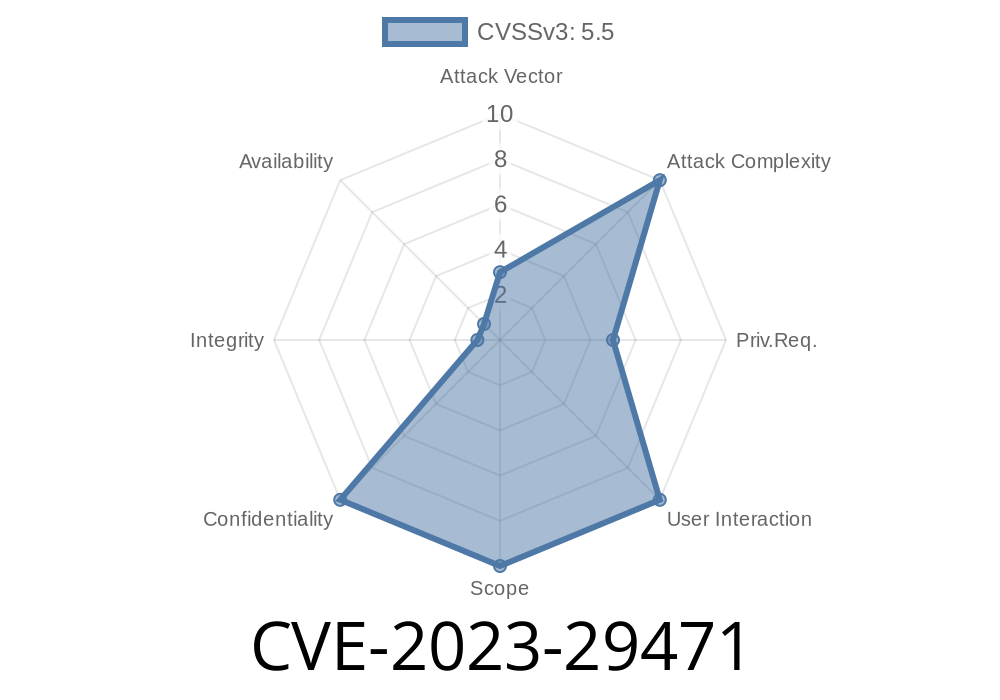On April 15, 2023, a moderate security vulnerability—CVE-2023-29471—was reported in the Lightbend Alpakka Kafka connector for Akka Streams. If you use Alpakka Kafka versions before 5.., there’s a risk that your sensitive Kafka credentials might be exposed in debug log files. This could happen if you, or anyone in your team, turns on DEBUG or TRACE logging. The root cause lies in the way the library logs its internal state.
This deep-dive post explains what happened, why it matters, and shows how an attacker might exploit this. We’ll stay light on jargon and heavy on actionable explanation.
What Is Alpakka Kafka?
Alpakka Kafka is a popular integration between Akka Streams and Apache Kafka, widely used to build high-throughput, reactive data pipelines in Java and Scala.
The Vulnerability: Credentials in Logs
CVE-2023-29471: *Lightbend Alpakka Kafka before 5.. logs its configuration as debug information, and thus log files may contain credentials (if plain cleartext login is configured). This occurs in akka.kafka.internal.KafkaConsumerActor.*
Anyone with access to DEBUG logs can read these credentials.
- Credential leakage can enable attacks like unauthorized access, privilege escalation, and lateral movement.
Official advisory:
- GitHub Security Advisory - GHSA-j924-x5c9-vqq2
- NVD CVE-2023-29471
How the Leak Happens
When Akka’s logging is set to DEBUG or TRACE, the internal KafkaConsumerActor class logs the full Kafka consumer configuration. Here’s a stylized excerpt (Scala):
// File: akka/kafka/internal/KafkaConsumerActor.scala
log.debug("Initializing Kafka consumer with settings: {}", settings)
And what might be in settings?
akka.kafka.consumer {
kafka-clients {
sasl.mechanism = "PLAIN"
sasl.jaas.config = "org.apache.kafka.common.security.plain.PlainLoginModule required \
username=\"superuser\" password=\"my5uper$ecret\";"
security.protocol = "SASL_PLAINTEXT"
}
}
With DEBUG logging enabled, you will find full config entries like
Initializing Kafka consumer with settings: ...
sasl.jaas.config = org.apache.kafka.common.security.plain.PlainLoginModule required username="superuser" password="my5uper$ecret";
...
Those logs might be copied to shared storage or log aggregators. Anyone reading them can see your plaintext password.
In your Akka or Lightbend application, set logging like so
akka {
loglevel = "DEBUG"
kafka.consumer.kafka-clients {
sasl.jaas.config = "org.apache.kafka.common.security.plain.PlainLoginModule required username=\"user1\" password=\"Sekretp@sswrd!\";"
security.protocol = "SASL_PLAINTEXT"
}
}
Run any code that creates an Akka Kafka consumer, for example
val consumerSettings = ConsumerSettings(system, new StringDeserializer, new StringDeserializer)
.withBootstrapServers("kafka:9092")
// other settings...
val done = Consumer
.plainSource(consumerSettings, Subscriptions.topics("sensitive-topic"))
.runWith(Sink.ignore)
3. Read the Log File
Assuming your logs are being collected at /var/log/myapp.log or similar, an attacker (malicious developer, ops person, intruder, etc.) just reads:
cat /var/log/myapp.log | grep 'sasl.jaas.config'
and gets
sasl.jaas.config = org.apache.kafka.common.security.plain.PlainLoginModule required username="user1" password="Sekretp@sswrd!";
1. Upgrade Immediately
Upgrade to Alpakka Kafka 5.. or later where this logging behavior is fixed.
SBT / Maven update example
libraryDependencies += "com.typesafe.akka" %% "akka-stream-kafka" % "5.."
If you can’t upgrade right away
- Make sure secrets/settings are not in config with plaintext if possible.
Initializing Kafka consumer with settings:
If you find any matches, *reset credentials immediately*.
References & Further Reading
- Alpakka Kafka 5.. Release Notes
- GitHub Security Advisory - GHSA-j924-x5c9-vqq2
- National Vulnerability Database CVE-2023-29471
- Akka Streams Kafka Official Documentation
Conclusion
CVE-2023-29471 is a classic example of a leak most teams only discover after a breach: sensitive secrets written to logs. If you use Alpakka Kafka, audit your logging, patch today, and review your security practices.
Stay vigilant, patch regularly, and respect your logs as a sensitive data source. If in doubt, *treat logs as critical assets*.
*If you found this post helpful, share it with your team, and always keep dependencies up to date!*
Timeline
Published on: 04/27/2023 21:15:00 UTC
Last modified on: 05/05/2023 18:11:00 UTC
